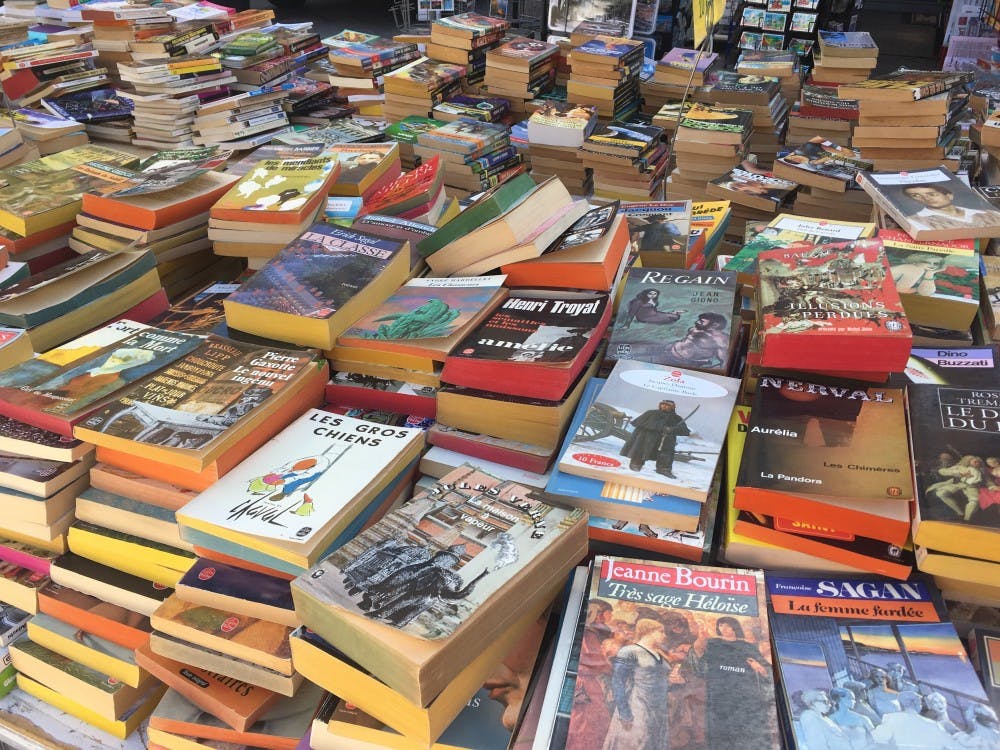Reading for homework is the bane of many college students’ existences, and this is understandable. Often we are forced to read long texts and complicated theory that takes hours to understand, and the preferable alternative is answering questions or solving problems, some sort of task with a clear objective.
But there is a certain magic in the act of interpretation, and capturing that is something special and practical. Every text written by someone else is a new and glorious way of looking at the world. The Atlantic recently published an article about the common factors that make someone a reader, which included education and tendencies towardintroversion, for example, and, most importantly, the way parents presented books to their children growing up.
At IU, though, we have so much access to literature, whether it be from educators or the library, that it could be easy to change these patterns we adopted in childhood. With this in mind, college students should read more for pleasure instead of solely for homework assignments if for no other reason than it will make you happy.
The novel is the obvious place to start. There is an entire world of fascinating literature to choose from, but a comment I often hear from my peers is that in this in-between stage of life where we are not teenagers but not quite real adults, either, it is hard to find literature to relate to. The young adult genre is full of stories about high school, while “adult” fiction is on boring subjects such as being bored with marriage and having an affair.
To that, I have three objections. The first is that there is no definitive genre classified as “adult.” The fiction section in any library or bookstore holds stories about people of any age, which is fantastic. We are not limited to stories about people just like us, and there is much to learn from the experiences of even children and senior citizens. The second objection is that stories about extramarital affairs can be fun, sometimes. The third is that there are actually lots of books that indeed explore the young adult collegiate experience.
In the case of contemporary novels, you can read about the dramatic exploits of Dublin literature students in Sally Rooney’s "Normal People." There is the tale of first love and heartbreak at Harvard in the 1990s in Elif Batuman’s "The Idiot." You could even explore the whirlwind of a wartime college experience by a Palestinian medical student in 1918 France in Isabella Hammad’s "The Parisian."
In fact, novelists have been writing about college students for generations. As far as the classics go, there’s the tale of love and innocence lost at Oxford in Evelyn Waugh’s "Brideshead Revisited" or the story of post-World War I morality at Princeton in F. Scott Fitzgerald’s "This Side of Paradise." Victor Hugo’s epic "Les Miserables" even features the doomed revolutionary exploits of university students.
This is all to say our current experience is incredibly special, and it is captured in literature in so many different beautiful ways.
There is no way to better sharpen the mind in analyzing and interpreting the world around us than by reading other people who have already done it in their own way. So, naturally, reading makes you a smarter person, but I would also argue that it makes you more observant and more sensitive.
You see something beautiful or experience something tragic: How would you put that into words? How would someone else? How can we fit our own experiences into the grand puzzle of the universe, and everything that has been recorded about it?
Perhaps I’m preaching to the choir, because as participants in an academic institution, there are probably an endless number of literary-minded folks, but to those who avoid reading for fun or never find the time, I implore you to carve out some reading time into your schedule. The book you read just might change your life, or at the very least make you happy.






